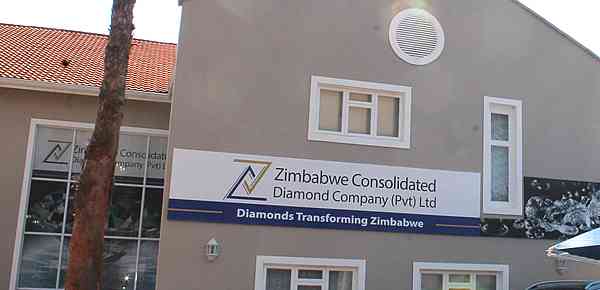
WHEN gunshots ring out recklessly in diamond concessions, claiming innocent lives, the brutality often denied by our government, is exposed for all to see.
Zimbabwe should have learned from the past.
Across Africa, thousands perished in brutal conflicts fuelled by diamonds, leaving behind immense human suffering.
The devastation reduced economies to ruins, shattered infrastructure and inflicted irreparable emotional scars.
At the time, Zimbabwe was largely unaware of its own diamond wealth. But since the significant discoveries in Marange in 2006, the response has been less about safeguarding a national treasure and more about turning the country into a hotspot for looting.
The consequences have been dire. Feeling excluded, approximately 35 000 artisanal miners flooded Marange in a desperate rush. The government’s heavy-handed crackdown led to the deaths of many illegal miners amid disturbing allegations of human rights abuses
But this did not stop the madness — industrial scale pillage escalated with those in the ruling party, their cronies and powerful international syndicates at the heart of everything.
This is why former mines minister Walter Chidhakwa’s 2016 decision to bring order at Marange was important. His intervention aimed to curb the plunder and de-escalate the violent confrontations between security forces and desperate artisanal miners.
- Mavhunga puts DeMbare into Chibuku quarterfinals
- Bulls to charge into Zimbabwe gold stocks
- Ndiraya concerned as goals dry up
- Letters: How solar power is transforming African farms
Keep Reading
The establishment of the Zimbabwe Consolidated Diamond Company (ZCDC) was a product of this initiative, designed to restore sanity to the sector.
However, reports this week allege that trigger-happy ZCDC security guards fatally shot an artisanal miner have reignited painful memories of the past.
If claims by resource campaigners that bloodshed has continued since ZCDC’s formation are confirmed, then we remain under the grip of a system that resorts to brute force to maintain control.
However, we cannot blame ZCDC as investigations are still ongoing. In the interest of transparency, a full-scale investigation is imperative.
If remnants of past atrocities still lurk within the institution, those responsible must be held accountable, and justice must be served. Requisite compensations should follow.
When President Emmerson Mnangagwa took power in 2017, he pledged to lead an orderly administration.
He vowed to stamp out corruption, prioritise economic recovery, and attract foreign investment. Now is the time to remind him of that promise.
“As we focus on recovering our economy, we must shed misbehaviours and acts of ill-discipline which have characterised the past. Acts of corruption must stop,” Mnangagwa said.
Zimbabweans are still waiting for these words to be honoured.











